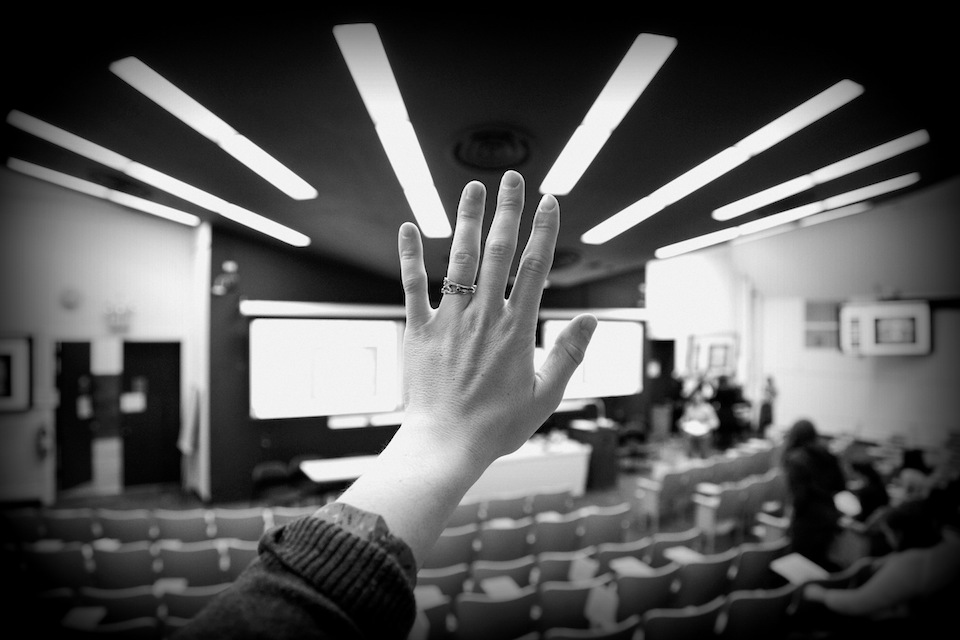Shadows and Supposes
When my 7th period finished reading They Poured Fire on Us from the Sky, I asked them to develop discussion questions we would use for our final discussion of the text. I looked across their questions and narrowed them down to the ones I saw come up again and again. Many had asked questions that related to one another and some focused too narrowly on specific parts of the book, so I worked to make them broader.
Prior to our day of discussion, I gave the students the set of questions so they could consider five of them, develop their responses, and support those responses with evidence from the text. The day of the discussion, the desks were in the shape of a large oval around the edges of the trailer walls. I elected to use a protocol that allowed students much say in how long we would pursue one topic and when we would shift to another. We had used this protocol before and students had found it useful. I wanted the students to direct the discussion and have their voices be at the center. I chose a seat outside the oval.
The question that got me wondering what our next step might be in our lesson was this: what do you think America’s role should be when these terrible things are happening around the world and innocent victims like children are suffering and dying? Students had varying points of view, but many echoed what had been shared before when we’d explored this question while reading the text. Some took an isolationist view, citing issues America had as a defense, others felt it wasn’t the U.S. government’s job to intervene and that it should focus on domestic issues, and a third cohort felt we needed to help those in need.
What troubled me was one student’s response. He went so far as to say that “God helps those who help themselves.” I tried desperately not to intervene; this was their discussion and I knew that if I were to step in, I would shut down all dialogue. I waited, hoping that someone would speak against these statements, but few people tried. Once God was brought into the discussion, many sat and nodded. The student next to me gave affirmation to the student’s comments by saying, “Yeah, that’s true. It’s in the Bible.” They gave no specific examples for their arguments (except God’s will) and that’s when I knew I had to take the time to delve into the issues surrounding humanitarian action and foreign policy.
Angela Dean
Madison County High School
Reprinted by permissions of the Publisher, From Bob Fecho, et al (eds.), Teaching Outside the Box but Inside the Standards: Making Room for Dialogue, New York: Teachers College Press. Copyright ©2016 by Teachers College, Columbia University. All rights reserved.

